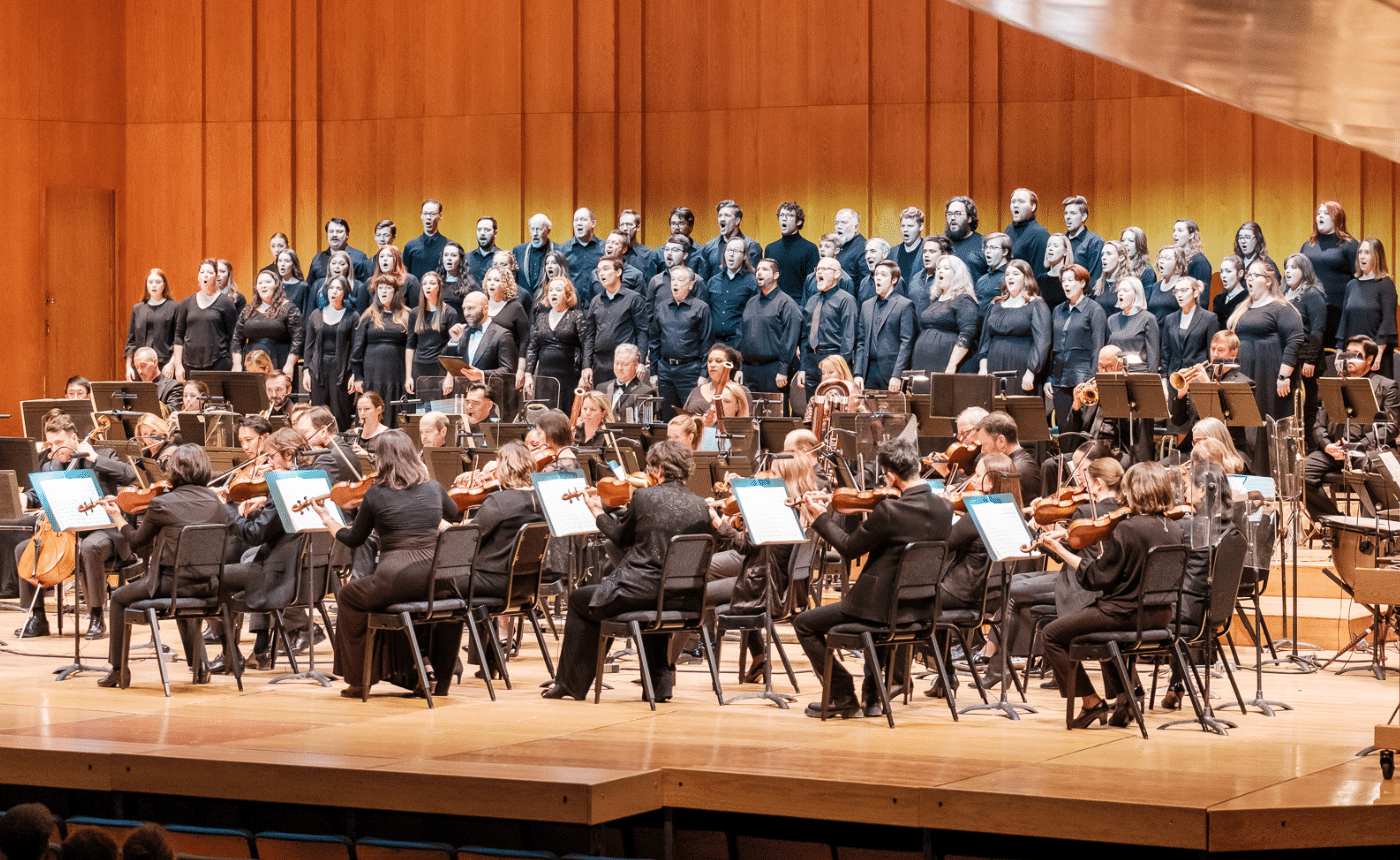Berlioz – Symphonie fantastique, op. 14
by Jeff Counts
Instrumentation: 2 flutes (2nd doubles piccolo), 2 oboes (2nd doubles English horn), 2 clarinets (1st doubles Eb clarinet), 4 bassoons, 4 horns, 2 trumpets, 2 cornets, 3 trombones, 2 tubas, 4 timpani, bass drum, cymbals, suspended cymbal, snare drum, low bells, 2 harps, strings.
Duration: 49 minutes in five movements.
THE COMPOSER – HECTOR BERLIOZ (1803-1869) – Berlioz won the Prix de Rome in 1830 and the honor did much to confirm him in Paris as a composer of considerable merit and ingenuity. The central requirement of the Prix was an extended relocation to Italy and for Berlioz, this meant departing from France just as he was gaining significant momentum in his professional life. He was also in a passionate relationship with a 19-year-old named Camille Moke.
THE MUSIC – Their betrothal would not survive the Italian sojourn. In fact, Berlioz hadn’t been gone long when he discovered that Camille had left him for another. Berlioz was so instantly and completely enraged that he set immediately to planning their murder and his own suicide. Though initially quite serious about the matter (he made it as far as Nice), he did not carry out the plot. The emotional temperature displayed in the reaction to Camille’s betrayal is illustrative of the wild imagination that made the Berlioz’ music so startling at times. Symphonie fantastique was among the rush of Paris premieres in 1830 just before Berlioz left for Rome and, to some in the audience, it must have sounded no less lurid or outrageous than a double homicide. Fittingly, it was the product of another infatuation. Harriet Smithson was an Irish actress and after seeing her as Ophelia in Hamlet, Berlioz was smitten beyond hope. The two would eventually marry in 1833 but at the time of Symphonie fantastique Berlioz’ love for Harriet was decidedly unrequited (so much so that he had turned his attention to Camille). Symphonie fantastique takes the listener on a fictional journey through sumptuous reveries and drug-induced dreams that lead ultimately to a death by beheading. The “Hero” and the “Beloved” of the tale are clearly Berlioz and Smithson and the incredible musical creativity that lights their way puts the composer in a class with very few peers.
THE WORLD – William IV became King of England in 1830, which was also the year revolution began in Belgium. Also in 1830, Greece became an independent state as part of the London Protocol and the United States enacted the Indian Removal Act.
THE CONNECTION – The very popular Symphonie fantastique was performed most recently on a Utah Symphony Masterworks concert in 2007. Guest conductor (!) Thierry Fischer conducted.











